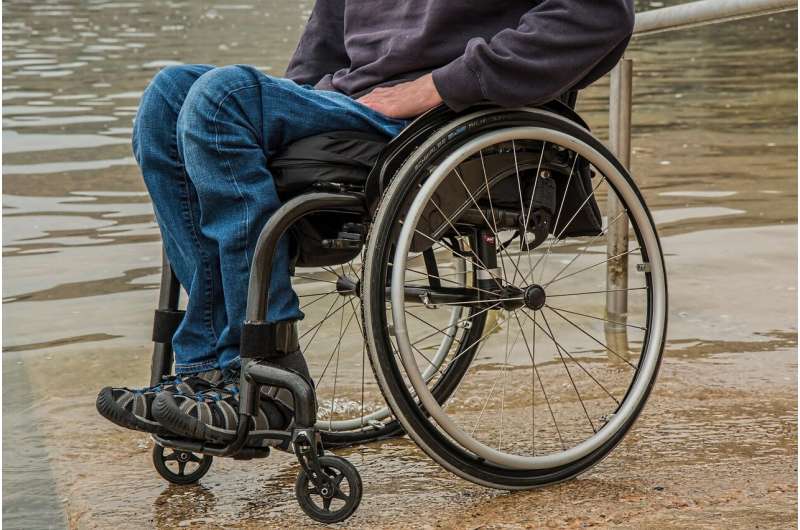Federal disability payments encourage more family caregiving, study finds

Federal disability benefits can lead to increases in other support for beneficiaries, such as in-kind assistance from adult children, according to a new RAND Corporation study.
Receipt of federal disability insurance also increases the likelihood that children are paid for their in-kind assistance and enables children who provide that assistance to reduce the amount that they work.
These findings, published online by the Journal of Health Economics, suggest that disability recipients are using disability benefits to provide financial compensation to their adult children caregivers.
"These findings provide new evidence that family shares in the burden of disability and that the impact of disability benefits extends beyond the beneficiary to the entire family," said Stephanie Rennane, the study's author and an associate economist at RAND, a nonprofit research organization. "Receipt of federal disability benefits allows a family to reoptimize how they support one another."
While prior work has studied the various sources of income and insurance for individuals who experience a disability, less research has examined how family support mechanisms interact and change over the evolution of a disability, and how they interact with federal disability benefits.
In order to examine trends in income, benefits and family assistance, Rennane used the Health and Retirement Study to analyze information about informal caregiving provided to survey respondents, and matched these details to disability benefit records from the Social Security Administration. The experiences of about 3,000 people were analyzed.
The study compared informal care provided to respondents who had received benefits through either the Social Security Disability Insurance program or Supplemental Security Income program with care to respondents who applied for the benefits, but were denied. The analysis adjusted for differences in health and income between accepted and denied applicants.
The analysis found that the receipt of federal disability payments leads to a 9 percentage point increase in the likelihood of receiving assistance from their children.
Receipt of federal disability payments also more than doubles the likelihood that children are paid for their help and leads to a 50% decline in the probability that the assisting children work full time.
The effects are particularly strong among lower income beneficiaries who receive Supplemental Security Income and among those who recently lost a spouse. Social Security Disability Insurance disability payments also decrease the likelihood that a spouse works.
"The benefits of federal disability payments are shared in complementary ways within the family, enabling a more-holistic network of both formal and informal caregiving," Rennane said. "The resources from disability insurance allow children to reallocate their time to care for their parents."
More information: Stephanie Rennane. A double safety net? Understanding interactions between disability benefits, formal assistance, and family support, Journal of Health Economics (2019). DOI: 10.1016/j.jhealeco.2019.102248




















